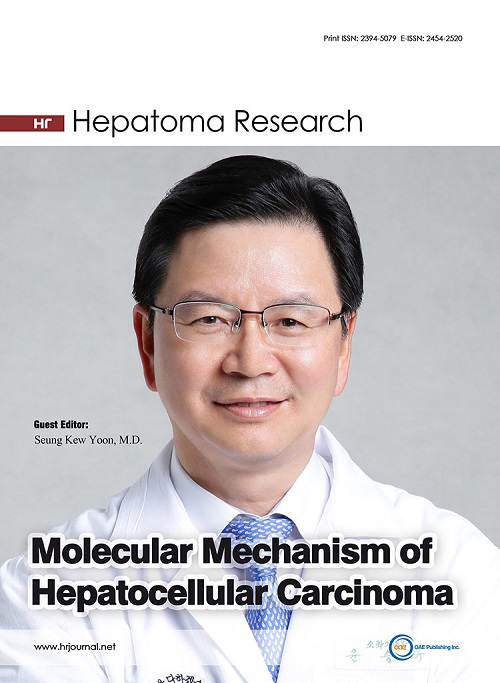
Topic: Molecular Mechanism of Hepatocellular Carcinoma
A Special Issue of Hepatoma Research
ISSN 2454-2520 (Online) 2394-5079 (Print)
Submission deadline: 26 Apr 2018
Guest Editor(s)
Special Issue Introduction
It is generally accepted that hepatocarcinogenesis is a very complex process that occurs through a multistep biological process during malignant transformation of normal hepatocytes in which various factors including genetic and epigenetic alterations are involved. Specifically, recent advances of next generation sequencing technologies have allowed the researchers to more profoundly understand the molecular mechanism of hepatocellular carcinoma(HCC), which have contributed to developing target therapy for cancers by identifying gene and associated signals involved in carcinogenesis and tumor progression. However, it is very difficult to completely treat advanced HCC because most advanced HCC is accompanied with poor liver function by liver cirrhosis. Surgical approaches including resection and liver transplantation in these cases are not available so molecular target therapy combined with immunotherapy has been an alternative strategy to prolong patients’ survival. To this end, further investigation of molecular pathway through various approaches in hepatocarcinogenesis and tumor progression is indispensable. In this session, we discuss recent advances in the molecular mechanism of HCC in various aspects and apply it to develop new molecular target therapy for HCC.
Submission Deadline
26 Apr 2018
Submission Information
For Author Instructions, please refer to https://www.oaepublish.com/hr/author_instructions
For Online Submission, please login at https://oaemesas.com/login?JournalId=hr
Submission Deadline: 26 Apr 2018
Contacts: Siqi Li, Assistant Editor, editor001@hrjournal.net





